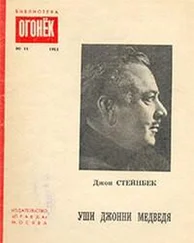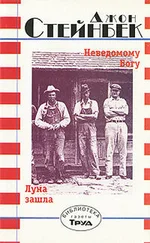Джон Стейнбек - Cup of Gold [Золотая чаша]
Здесь есть возможность читать онлайн «Джон Стейнбек - Cup of Gold [Золотая чаша]» — ознакомительный отрывок электронной книги совершенно бесплатно, а после прочтения отрывка купить полную версию. В некоторых случаях можно слушать аудио, скачать через торрент в формате fb2 и присутствует краткое содержание. Год выпуска: 1929, Жанр: Прочие приключения, на английском языке. Описание произведения, (предисловие) а так же отзывы посетителей доступны на портале библиотеки ЛибКат.
- Название:Cup of Gold [Золотая чаша]
- Автор:
- Жанр:
- Год:1929
- ISBN:нет данных
- Рейтинг книги:5 / 5. Голосов: 1
-
Избранное:Добавить в избранное
- Отзывы:
-
Ваша оценка:
- 100
- 1
- 2
- 3
- 4
- 5
Cup of Gold [Золотая чаша]: краткое содержание, описание и аннотация
Предлагаем к чтению аннотацию, описание, краткое содержание или предисловие (зависит от того, что написал сам автор книги «Cup of Gold [Золотая чаша]»). Если вы не нашли необходимую информацию о книге — напишите в комментариях, мы постараемся отыскать её.
Cup of Gold [Золотая чаша] — читать онлайн ознакомительный отрывок
Ниже представлен текст книги, разбитый по страницам. Система сохранения места последней прочитанной страницы, позволяет с удобством читать онлайн бесплатно книгу «Cup of Gold [Золотая чаша]», без необходимости каждый раз заново искать на чём Вы остановились. Поставьте закладку, и сможете в любой момент перейти на страницу, на которой закончили чтение.
Интервал:
Закладка:
Porlock they passed on the port side, and Illfracombe, and many vague villages tucked in the folds of Devon. The fair, sweet wind carried them by Stratton and Camelford. Cornwall was slipping off behind them, league on blue league. Then Land's End, the pointed tip of Britain 's chin; and, as they rounded to the southward, Winter came in at last.
The sea rose up and snarled at them, while the ship ran before the crying dogs of the wind like a strong, confident stag, ran bravely under courses and spritsail. The wind howled out of Winter's home in the north, and the Bristol Girl mocked it across its face to the southwest. It was cold; the freezing shrouds twanged in the wind like great harp strings plucked by a demented giant, and the yards groaned their complaint to the tugging sails.
Four wild days the persistent storm chased them out to sea with the ship in joy at the struggle. The seamen gathered in the forecastle to boast of her fleetness and the tight shape of her. And in this time Henry exulted like a young god. The wind's frenzy was his frenzy. He would stand on the deck, braced against a mast, face into the wind, cutting it with his chin as the prow cut the water, and a chanting exultation filled his chest to bursting-joy like a pain. The cold wiped off the lenses of his eyes so that he saw more clearly into the drawn distance lying in a circle around him. Here was the old desire surfeited with a new; for the winds brought longing to have sweeping wings and the whole, endless sky for scope.
The ship was a rocking quaking prison for him who would fly ahead and up. Ah! to be a god and ride on the storm! not under it. Here was the intoxication of the winds, a desire which satisfied desire while it led his yearning onward. He cried for the shoulders of omnipotence, and the elements blew into his muscles a new strength.
Then, as quickly as the devil servants of the year had rushed at them, they slunk away, leaving a clear, clean sea. The ship rode under full sail before the eternal trade wind. It is a fresh, fair wind out of heaven, breathed by the God of Navigation for the tall ships with sails. All the tension was gone from them; the sailors played about the deck like wild, strong children-for there is young happiness in the trade wind.
Sunday came, a day of sullen fear and foreboding on the Bristol Girl. Henry finished his work in the galley and went on deck. An aged seaman was sitting on a hatch plaiting a long splice. His fingers seemed each a nimble intelligence as they worked, for their master never looked at them. Instead, his small blue eyes, after the manner of sailors' eyes, looked out beyond the end of things.
"So you would know the secrets of the lines?" he said, without moving his gaze from the horizon. "Well, you must just watch. It's so long I've been doing it that my old head has forgotten how; only my fingers remember. If I think what I'm doing I get muddled up. Will you be a sailor and go aloft one day?"
"Why, I'd like to, if I could learn the workings," Henry said.
"It's not so hard to learn the workings. You must learn first to bear things that landsmen never heard of.
That's the first thing. It's very cruel, but you may never leave it once you start. Here I've been trying to take my old hulk ashore and berth it in front of a fire for a dozen years. I want to think awhile and die.
But it's no use. Every time I find myself running my legs off to get aboard some ship or other."
He was interrupted by a vicious ringing of the ship's bell.
"Come," he said, "the master will be telling us the hot ta1es now."
The skull-faced master stood before his crew, armed with his God. The men looked fearfully at him, as small birds gaze at an approaching snake, for his faith was in his eyes and words of fury fell from his thin lips.
"God has struck you with only the title of his shattering might," he shouted. "He has shown you the strength of His little finger that you may repent before you go screaming in hell-fire. Hear the name of the Lord in the frightful wind and repent you of your whorings and your blasphemies! Ah! He will punish you even for the wicked thoughts in your heads.
"There is a parable in the sea that should close about your throats like a freezing hand and choke you with the terror. But now the storm is done you have forgotten it. You are happy, and contrition is not in you. But take warning of the lesson of the Lord. Repent! Repent! or the wrath destroys you."
He swung his arms wildly and spoke of the poor lonely dead, suffering and burning for dear human faults; and at last he sent his men terrified away.
"That is not so," said the old sailor fiercely to Henry. "Do not be taking stock in his crazy talk. Who made the storm-God or devil-made it for itself and took joy of it. What being could hurl the wind so would not be bothering himself about a chip of a boat floating in immensity. I know I would not, if I were that god or devil."
The Bo's'n, Tim, had come up with his last words, and now he took Henry's arm protectingly.
"True for you," he said; "but do not let it get back to him that you say such things or even hear them with your ears, or he will be demonstrating the might of God to you with a rope's end. He and his God are a hard pair to be getting down on you, and you a boy scrubbing pots in the galley."
The trade wind blew on unceasingly, and, when his scouring and peeling were done, Henry talked with the men while he laid hand to the ropes and went aloft and learned the names and workings of the ship's gear. The sailors found him a quiet, courteous boy with a way of looking at them as though their speech were a great gift and they wise, kind men to be giving it to him; and so they taught him what they could, for very plainly this boy was born to the sea. He learned the short and long haul chanteys, the one quick and nervous and the other a slow, swinging rhythm. He sang with them the songs of death and mutiny and blood in the sea. To his lips came the peculiar, clean swearing of sailors; phrases of filth and blasphemy and horror, washed white by their utter lack of meaning in his mouth.
And in the nights he lay back quietly while the men talked of wonders seen and imagined; of mile-long serpents which coiled about ships and crushed and swallowed them, and of turtles so huge that they had trees and streams and whole villages on their backs and only sank once in five hundred years. Under the swinging lamps they told how Finns could whistle up a deadly storm for their revenge; how there were sea-rats that swam to the ships and gnawed holes through the planking until the ships sank. They spoke shudderingly of how one, sighting the dread, slimy kraken, might never see land again for the curse that was on him. Water spouts were in their speech, and mooing cows that lived in the sea and suckled their calves like land cows; and ghost ships sailing endlessly about the ocean looking for a lost port, their gear worked by seamen who were bleached skeletons. And Henry, lying there, reached breathless for their words with his avidity.
"On such a night, Tim stretched himself and said, "I know nothing of your big snakes at all, nor have I seen the kraken, God save me! But I've a bit of a tale myself if you'll be listening.
" 'Twas when I was a boy like this one here, and I sailing in a free ship that tucked about the ocean picking up here and there-sometimes a few black slaves and now and then a gold ring from a Spanish craft that couldn't help itself-whatever we could get. We had a master by election and no papers at all, but there were different kinds of flags, and they on the bridge. If we did be picking out a man o' war in the glass, then we ran for it.
"Well, anyway, as I'm telling you, one morning there was a little barque to the, starboard, and we wetting sail to run her down; and so we did, too. Spanish, she was, and little enough in her but salt and green hides. But when we turned out the cabin there was a tall, straight woman with black hair to her, and a long white forehead, and the slenderest fingers I ever looked on with my eyes. So we took her aboard of us and didn't take the rest. The captain was for leading the woman to the quarter deck alongside of him, when the bo's'n stepped up.
Читать дальшеИнтервал:
Закладка:
Похожие книги на «Cup of Gold [Золотая чаша]»
Представляем Вашему вниманию похожие книги на «Cup of Gold [Золотая чаша]» списком для выбора. Мы отобрали схожую по названию и смыслу литературу в надежде предоставить читателям больше вариантов отыскать новые, интересные, ещё непрочитанные произведения.
Обсуждение, отзывы о книге «Cup of Gold [Золотая чаша]» и просто собственные мнения читателей. Оставьте ваши комментарии, напишите, что Вы думаете о произведении, его смысле или главных героях. Укажите что конкретно понравилось, а что нет, и почему Вы так считаете.
![Джон Стейнбек Cup of Gold [Золотая чаша] обложка книги](/books/181372/dzhon-stejnbek-cup-of-gold-zolotaya-chasha-cover.webp)





